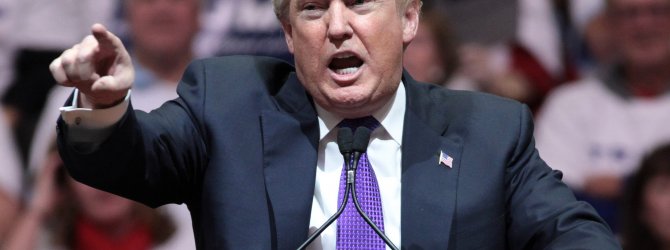-
Op-ed: What Does Trump Mean for the WANA Region?
Op-ed: What Does Trump Mean for the WANA Region?

If social media is anything to go by, then a healthy majority of the region’s citizenry is dismayed by the election of Donald Trump as the 45th president of the United States of America. No Arab could have missed the rhetoric Trump spent his election campaign claiming to stand for. We have heard his calls for banning or ‘extreme vetting’ of Muslims seeking to enter the United States; his endorsement of torture and indiscriminate killing in pursuit of a one-dimensional vendetta against Da’esh; and his increasingly loud endorsement of Israel.
Even so, in the run up to the election I found myself talking to a surprising number of Jordanians who didn’t share this opinion. Some – perhaps ironically for such a divisive and insular candidate – wished for a Trump victory for the same reason as many Americans: rightly or wrongly, they saw the status quo represented by Hillary Clinton as a greater evil. How the strength of such sentiments eluded the Democratic establishment is likely to be debated for months – perhaps even years – to come.
Regardless of where one falls on the political spectrum, it seems clear that Trump’s victory – although we should be careful not to pre-judge how his administration will actually behave – is likely to have significant repercussions for the WANA region. The President-elect has already reiterated his commitment to moving the US embassy in Israel to Jerusalem, and to reneging on the US’s nuclear treaty with Iran. Trump’s close association with hitherto extreme Middle East hawks on his team invites little confidence that political realities will soften such stances.
The other likely impacts of Trump’s presidency may be less direct, but equally important. His platform and that of his supporters – indeed the word ‘Trumpism’ is gaining currency at a shocking pace – seems directly opposed to many aspects of international and regional order as we presently understand it. If Trump’s America is isolationist, pulling out of international treaties and watering down commitments toward longstanding allies, it will further weaken the country’s already shaky friendships in the region. If it is aggressively militaristic it will at the very least provoke America’s traditional antagonists. It is entirely possible that both will happen at the same time.
Trump’s regressive and anti-science attitude to climate change almost certainly means that the region will have to adapt to more intense heat and dryness than it already faces. Lest anyone be inclined to be blasé about this; credible research already points to scenarios where parts of the Gulf and southern Iraq could be uninhabitable by the end of the century.
However, it is important not to see America’s astonishing election result in purely negative terms. Nor should we fall back on the perennially stoical attitude of people who have seen so many US presidents come and go with so many unfulfilled promises as to no longer believe that it makes any difference. If Trump means that America will turn inwards, then now is the moment for the people of the WANA region to take more aggressive charge of developing their own solutions, realising their own development pathways, and banking their own knowledge. If it means that American foreign policy is going to be more reckless, more aggressive, more ignorant, more disruptive (many will have edited the word ‘even’ into that sentence), then it is time for Arabs and people residing in the WANA region to counter this as they have done in the past: with civilisation.
***
Op-ed by Dr Gilbert Ramsay
